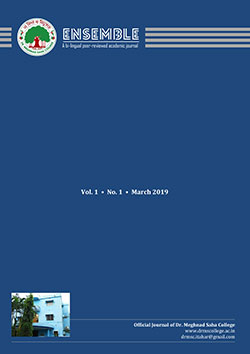Birth of a Squatters’ Colony: Revisiting history through refugee narratives
Abstract
Squatters’ colonies form essential feature of the social, political, cultural and topographic landscape of West Bengal. ‘Destitution and despair’ of East Bengali Hindu refugees as the ‘impetus behind’ and ‘impervious unity and unanimous struggle’ of refugees as the ‘means for success’ in establishment of these colonies have been part of the official account and popular discourse relating to refugee movement in Bengal. Refugee women’s agency in land grabbing movement and counter-eviction struggle are celebrated as the steps towards shattering the patriarchal demarcation between private and public. Present article offers a micro-sociological study of a squatters’ colony, and based on the narratives of real life experiences of colony-people who lived through the struggle of self-rehabilitation, it tends to highlight the varied nature of needs, perceptions and aspirations of refugees; contest and negotiation of power; conflict and clash between selfish/ egoistic interest and community-centred interest; political battles; and patriarchal exploitation of gender roles that were pervasive in the colony life during those days of self-rehabilitation. It also focuses on how the temptation of generalization in meta-narrative analyses tends to obscure the obvious dynamics of life- cohesion versus conflict, exploitation versus subversion of power-politicswithin the squatters’ colonies, which micro-level social researches may bring forward and thereby signify the scope for re-writing history.
Keywords: Gender, Micro-sociology, Mixed-method study, Narrative analysis, Patriarchy, Power-nexus, Partition, Rehabilitation
https://doi.org/10.37948/ensemble-2021-0202-a028
Views: 2289



